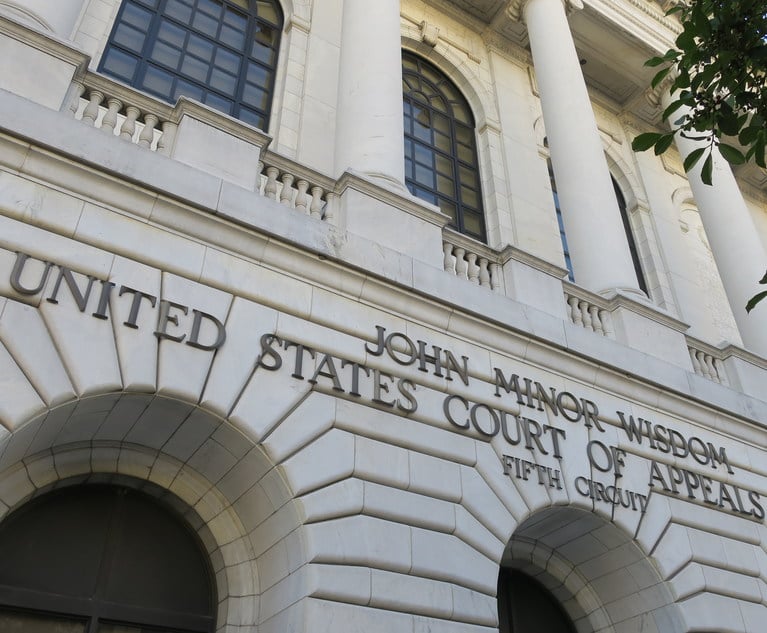Court Tackles State Public Education Funding in Two Cases
In their New York Court of Appeals Roundup, Lynn K. Neuner and William T. Russell Jr. write that at the end of last month, the Court of Appeals addressed once again the issue of adequate state funding for public education, dismissing plaintiffs' statewide challenges to the system, but permitting certain claims to proceed solely to the extent that they relate to circumstances in Syracuse and New York City.
July 18, 2017 at 02:04 PM
14 minute read
At the end of last month, the Court of Appeals addressed once again the issue of adequate state funding for public education. In the companion cases of Aristy-Farer v. State of New York and New Yorkers for Students' Educational Rights v. State of New York, the Court of Appeals dismissed plaintiffs' statewide challenges to the system by which public education is funded in New York, but permitted certain claims to proceed solely to the extent that they relate to circumstances in Syracuse and New York City. This represents the latest round in a series of efforts dating at least as far back as the 1980s by education advocates seeking increased funding for public education in New York.
The New Yorkers for Students' Educational Rights (NYSER) action was brought by individual parents in a number of school districts and was led by the educational advocacy group NYSER. The Aristy-Farer action was brought by parents of New York City schoolchildren. Both actions were brought against the state of New York, the governor, the Board of Regents and others, and alleged that the state had failed to provide students with a sound basic education as required by the state Constitution's Education Article.
The NYSER complaint asserted four causes of action: (1) defendants failed to comply with the Court of Appeals' prior decisions in the Campaign for Fiscal Equity (CFE) case1 by depriving New York City students of the minimum constitutional level of funding; (2) students statewide are being deprived of a sound basic education as a result of defendants' various educational budget-cutting measures; (3) defendants violated the Education Article by, inter alia, failing to undertake studies to determine the cost of a sound basic education and failing to ensure an accountability system for measuring academic performance; and (4) defendants failed to provide students statewide with a sound basic education in violation of the Education Article. The Aristy-Farer plaintiffs alleged three claims arising from the state's withholding of approximately $290 million from the New York City school district as a result of the school district's failure to implement certain teacher and administrator performance assessments.
This content has been archived. It is available through our partners, LexisNexis® and Bloomberg Law.
To view this content, please continue to their sites.
Not a Lexis Subscriber?
Subscribe Now
Not a Bloomberg Law Subscriber?
Subscribe Now
NOT FOR REPRINT
© 2025 ALM Global, LLC, All Rights Reserved. Request academic re-use from www.copyright.com. All other uses, submit a request to [email protected]. For more information visit Asset & Logo Licensing.
You Might Like
View All

Legal Issues to Watch in the US Appeals Courts in 2025

Second Circuit Upholds $5M Judgment Against Trump in E. Jean Carroll Case
4 minute read
Ties Go in Favor of Voters: NY Court of Appeals Upholds 2021 Canvassing Law
Trending Stories
- 1How We Won: Samsung Defeats Data Breach Class Action
- 2With Florida’s Lateral Hiring Remaining Steady in 2024, Here’s the Top Hires Throughout the State
- 3Capital Markets Partner Rejoins O’Melveny Ahead of Expected Uptick in Demand
- 4Pharma Company Faces Breach-of-Contract Claim Over $1.3 Million in Unpaid Invoices
- 5KPMG Law Seeks Alternative Business License, Shaking Up Legal Status Quo
Who Got The Work
Michael G. Bongiorno, Andrew Scott Dulberg and Elizabeth E. Driscoll from Wilmer Cutler Pickering Hale and Dorr have stepped in to represent Symbotic Inc., an A.I.-enabled technology platform that focuses on increasing supply chain efficiency, and other defendants in a pending shareholder derivative lawsuit. The case, filed Oct. 2 in Massachusetts District Court by the Brown Law Firm on behalf of Stephen Austen, accuses certain officers and directors of misleading investors in regard to Symbotic's potential for margin growth by failing to disclose that the company was not equipped to timely deploy its systems or manage expenses through project delays. The case, assigned to U.S. District Judge Nathaniel M. Gorton, is 1:24-cv-12522, Austen v. Cohen et al.
Who Got The Work
Edmund Polubinski and Marie Killmond of Davis Polk & Wardwell have entered appearances for data platform software development company MongoDB and other defendants in a pending shareholder derivative lawsuit. The action, filed Oct. 7 in New York Southern District Court by the Brown Law Firm, accuses the company's directors and/or officers of falsely expressing confidence in the company’s restructuring of its sales incentive plan and downplaying the severity of decreases in its upfront commitments. The case is 1:24-cv-07594, Roy v. Ittycheria et al.
Who Got The Work
Amy O. Bruchs and Kurt F. Ellison of Michael Best & Friedrich have entered appearances for Epic Systems Corp. in a pending employment discrimination lawsuit. The suit was filed Sept. 7 in Wisconsin Western District Court by Levine Eisberner LLC and Siri & Glimstad on behalf of a project manager who claims that he was wrongfully terminated after applying for a religious exemption to the defendant's COVID-19 vaccine mandate. The case, assigned to U.S. Magistrate Judge Anita Marie Boor, is 3:24-cv-00630, Secker, Nathan v. Epic Systems Corporation.
Who Got The Work
David X. Sullivan, Thomas J. Finn and Gregory A. Hall from McCarter & English have entered appearances for Sunrun Installation Services in a pending civil rights lawsuit. The complaint was filed Sept. 4 in Connecticut District Court by attorney Robert M. Berke on behalf of former employee George Edward Steins, who was arrested and charged with employing an unregistered home improvement salesperson. The complaint alleges that had Sunrun informed the Connecticut Department of Consumer Protection that the plaintiff's employment had ended in 2017 and that he no longer held Sunrun's home improvement contractor license, he would not have been hit with charges, which were dismissed in May 2024. The case, assigned to U.S. District Judge Jeffrey A. Meyer, is 3:24-cv-01423, Steins v. Sunrun, Inc. et al.
Who Got The Work
Greenberg Traurig shareholder Joshua L. Raskin has entered an appearance for boohoo.com UK Ltd. in a pending patent infringement lawsuit. The suit, filed Sept. 3 in Texas Eastern District Court by Rozier Hardt McDonough on behalf of Alto Dynamics, asserts five patents related to an online shopping platform. The case, assigned to U.S. District Judge Rodney Gilstrap, is 2:24-cv-00719, Alto Dynamics, LLC v. boohoo.com UK Limited.
Featured Firms
Law Offices of Gary Martin Hays & Associates, P.C.
(470) 294-1674
Law Offices of Mark E. Salomone
(857) 444-6468
Smith & Hassler
(713) 739-1250






